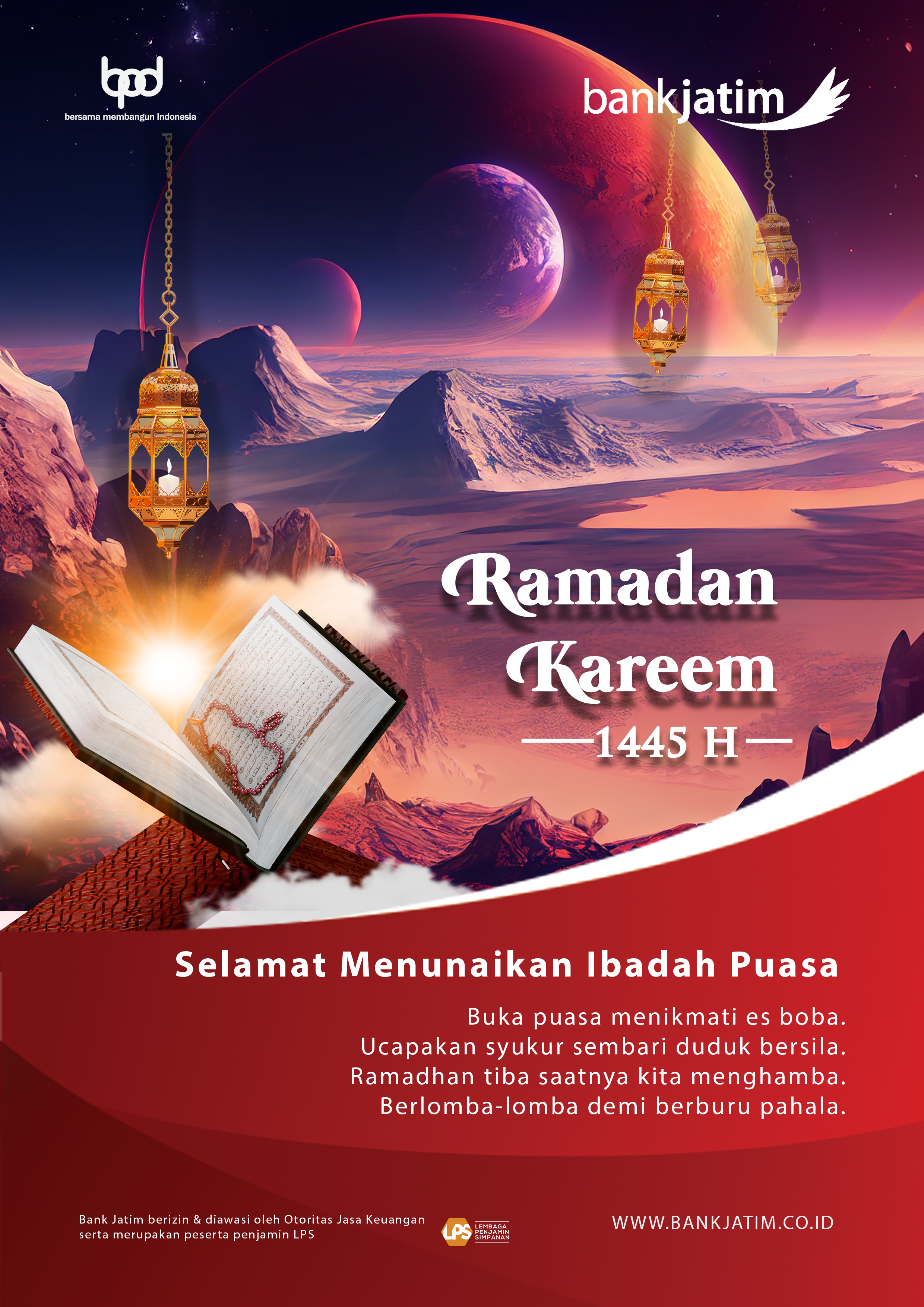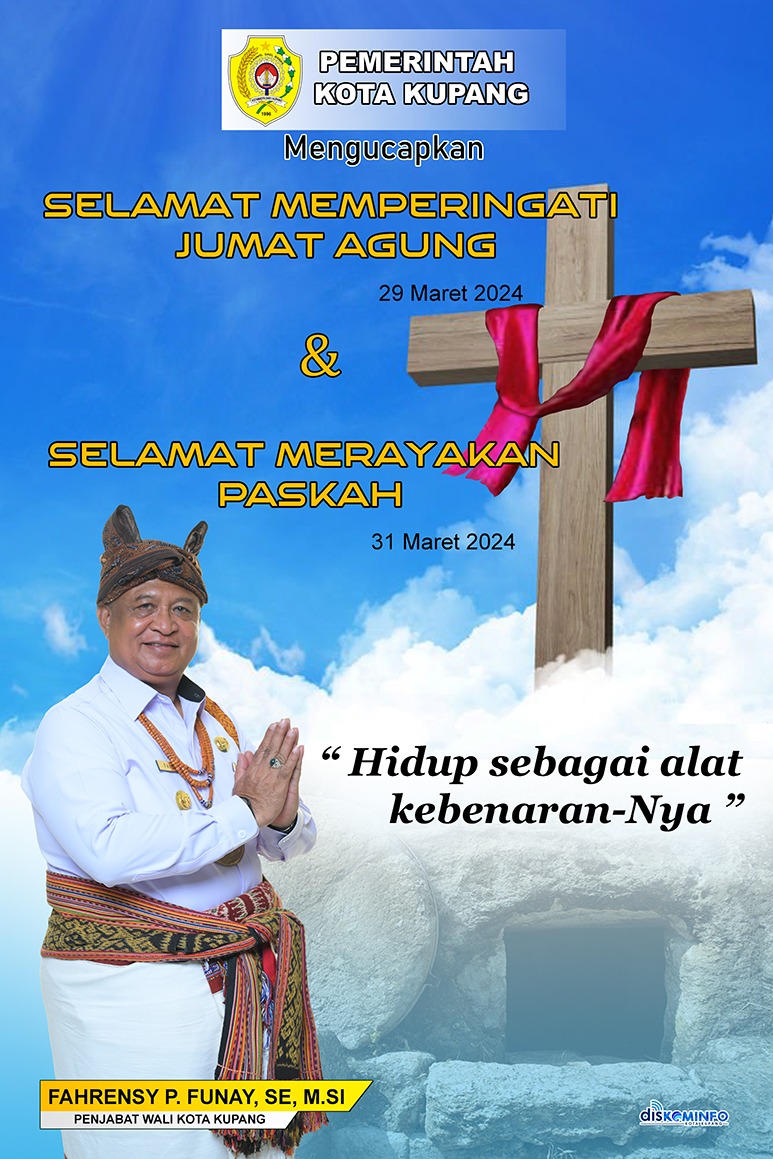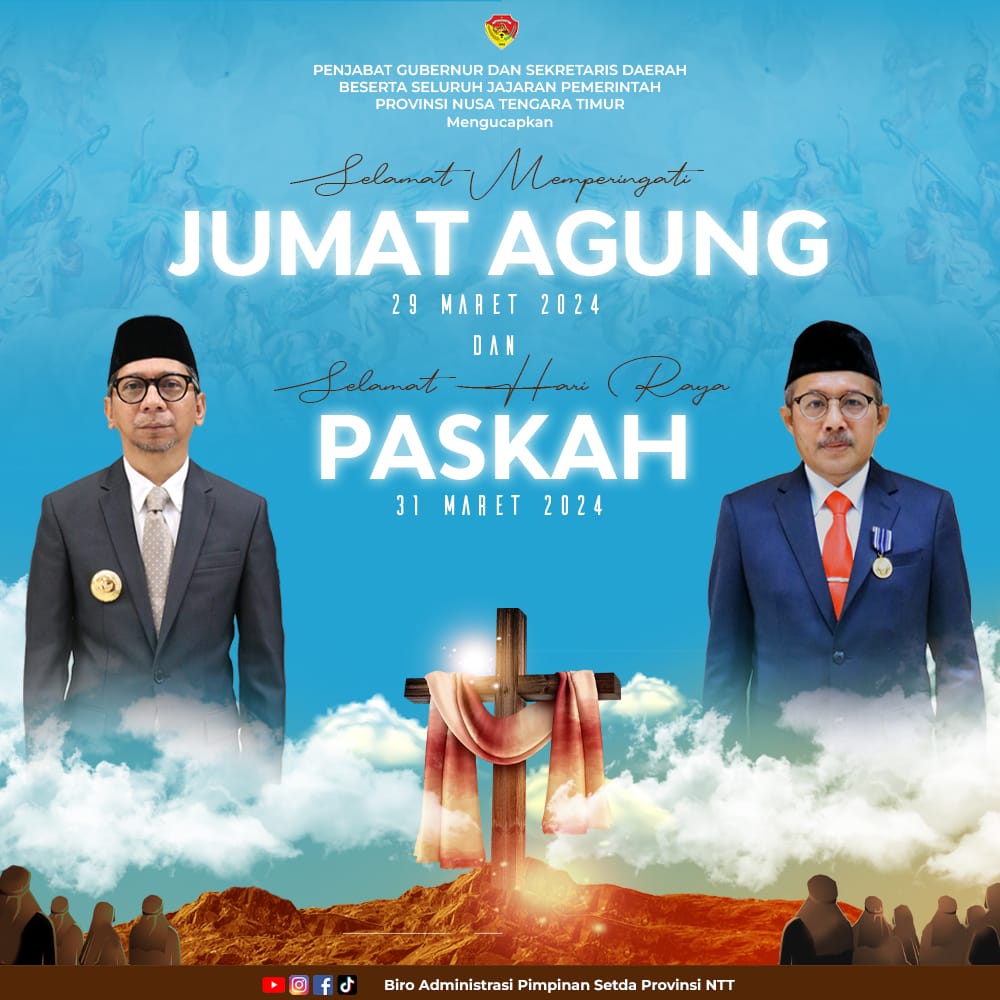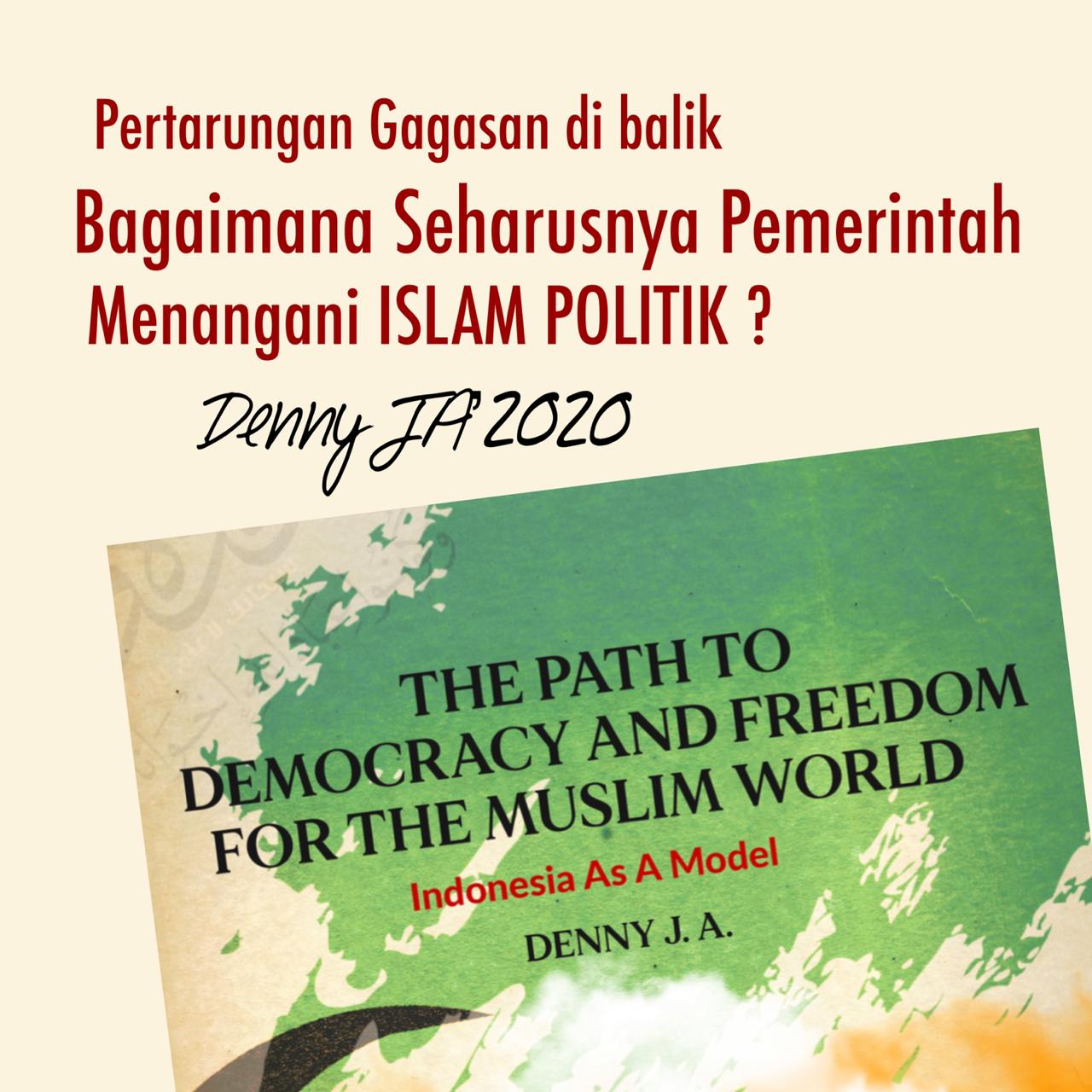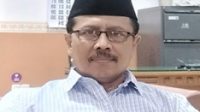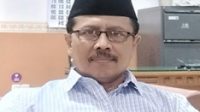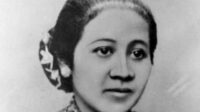berdiri pertarungan gagasan:
Bagaimana kita menata hubungan negara dan agama? Apa yang harus dilakukan agar Indonesia menjadi model bagi Dunia Muslim untuk hijrah memeluk demokrasi dan kebebasan?
Di bawah ini esai pengantar dalam buku karya Denny JA: The Path to Democracy and Freedom for Muslim World).
Keseluruhan buku itu bisa dibaca, dicetak, disebar, dengan mengklik link di bagian paling bawah esai)
-000-
DO DEMOCRACY AND FREEDOM REIGN IN THE MUSLIM WORLD?
Denny JA
How would the world look at such a time? At a time when 50 countries with majority Muslim populations all migrated to em- brace democracy and freedom? The world would certainly feel like a safer, brighter, and more comfortable place in which to live.
But is it possible? Is it possible that 50 majority Muslim countries would migrate in droves or little by little to embrace democracy and freedom?
The answer is that it is not only possible, but it is a must. It is possible because the system that a country develops is the offspring of its political, economic, and cultural dynamics.
Fly up even higher to look at five thousand years of civilization. What do you see? Only one thing is clear: What doesn’t change is change itself.
Social sanctions could always work to force 50 Muslim countries to migrate towards democracy and freedom.
It is more than possible, it’s a must!
50 majority Muslim countries must embrace democracy and freedom. Leaders, fighters, and heroes who want something more will always appear.
The Pew Research Center in the United States has said that by 2070, Muslims will be the largest segment of the world population.
The presence of Muslim countries that are free and democratic, or the opposite of that, will influence whether the world is peaceful or turbulent.
What’s more, at that time, beginning in 2070, Muslims will constitute the largest population.
For the sake of a better world, the majority of 50 Muslim countries must move to embrace democracy and freedom. What remains then is when and how?
Thus, we will delve into elaborating “the social origins of democracy and freedom.” The historic origins and forces which gave birth to democracy and freedom are the key.
-000-
Academic history has taught us to transcend two types of futile issues. The first is the question of whether Islam and democracy are compatible or not? Are the teachings of Islam and basic dem- ocratic values compatible?
This is a futile question because Islam, like other religions and other major concepts, exists in the realm of interpretation. There will always be interpretations from the left, the middle, and the right.
On the far right, there are clerics and academics like Sayyid Ab- dul Maududi (1903-1979) and Sayyid Qutb (1906-1966). With all their knowledge, they explained that Islamic principles are different from democracy.
Democracy depends upon the sovereignty of the people. While Islam is based upon the sovereignty of God. Because God is sovereign, states must be developed with religious principles.
The state is part of religion. Meanwhile, democracy separates the state and religion.
However, on the left, there are also Muslim academics who are no less expert: Abdul Karim Soroush (1945- ). His views are the opposite. Islam has always been associated with democracy and freedom.
According to Soroush, and other clerics, Islamic teachings focus on the values of Hurriyah (freedom), Adl (justice), Shurah (consultation)
and Itjihad (rational interpretation).
The essence of Islamic teachings is parallel with the principles of democracy and freedom.
On the far right is the Wahabi movement. This is a conservative Islamic group. Their ideas are not in line with the principles of human rights formulated by the United Nations.
But on the far left is the Progressive Muslim movement. This movement supports women to lead prayers, even for men. They even provide mosques for homosexual weddings.
The question of whether Islam is consistent with democracy will not give us any certainty, because of the various interpretations.
Moreover, we also read history. What happens in the real world is not just a product of religious interpretations, but also the result of real social, political, and economic power struggles.
We must also not repeat the second futile issue. That is, to read the future within the framework of the present. For example, because among the 50 Muslim countries today, not one has achieved a level of Full Democracy, thus democracy will not bear fruit in the Muslim region.
It is true, that is the latest data. The Democracy Index regarding the Muslim World as reported by the Economist Unit Index in 2019 is indeed cause for concern.
Of 60 majority Muslim countries, there is data for 50 countries, not one of which qualifies as a Full Democracy. Only 6 percent (3 countries) are at the level of Flawed Democracy: Malaysia, Tunisia, and Indonesia.
34 percent or 17 countries are at the level of Hybrid Regimes. About 60 percent of Muslim countries (30 of the 50 Muslim countries) are in the lowest level of political sys- tems: Authoritarian Politics.
However, history teaches us that the data of today is also the product of the social, economic, political and cultural struggles of today. The future is not bound to the present.
Social groups are continually growing and undergoing turmoil.
Look at the Soviet Union and the Eastern European Bloc. From 1946 until 1989 that region was communist.
If we look at the data from that region in 1970, for example, it would be out of the question to talk about the possibility of a political and economic system beyond communism operating in that region.
But take a look today. In that region, 29 countries are moving to embrace democracy and freedom. The speed of that migration of course differs from one country to the next.
No region on earth is created with a contract binding it to embrace one kind of political and economic system for eternity.
Look at the history of civilization. What we call the Western world, the Eastern European world, the Muslim world, have all changed. They are all just the products of the dynamics of historical struggles.
-000-
Thus, this book has been written with provocative views of three issues. Firstly, in time the majority of the 50 Muslim countries will migrate to embrace democracy and freedom.
Great waves of civilization work more strongly than any regime in the world. It is just that the journey towards democracy and freedom take place in stages.
Secondly, among the 50 Muslim countries, Indonesia may be a suitable model. Not only because Indonesia is the country with the largest Muslim population in the world, and not only because Indonesia has succeeded several times in changing those in power through peaceful general elections.
But because in Indonesia a strong political culture has grown that rejects becoming a religious state.
Thirdly, the initial route that should be followed by the 50 Muslim countries towards democracy and freedom is non-liberal democracy.
Illiberal democracy would be a kind of first stop in this migration.
The liberal culture like that found in countries that have legalized homosexual marriage, for example, cannot be forced in this region, at this time.
But the times are continually changing. Tolerance of differences in religion and sexual orientation will be shaped over time. The principles of human rights have swept through civilization like a wave.
In time, those principles will also be accepted in the public spaces of the Muslim World.
Isn’t that the way history progresses? In the 17th century, for example, religious differences could possibly lead to people killing one another. Today people with different beliefs can live side by side.
Why does this book mention 50 Muslim countries? Aren’t there 57 Muslim countries which are members of the OIC (Organiza- tion of Islamic Cooperation) in 2020?
This book is limiting itself to just 50 Muslim countries, with majority or over 50 percent Muslim populations. And it is also limited by the availability of data for analysis.
-000-
After exploring democracy and freedom in the Muslim World, this book will give an overview of the history of democracy and freedom throughout the world.
It will not just look at democracy in America and England, and will not just look briefly at freedom in Germany, France, Russia, and Africa, but also in India and other parts of the third world.
We are awaiting the fourth wave of democracy and freedom. The first wave began in England and America in the 18-20th centuries.
The second wave spread after World War II. The third wave en- gulfed the regions of Soviet Communism and Eastern Europe. The fourth wave will be when it engulfs 50 Muslim countries.
As Victor Hugo said: “Nothing is more powerful than an idea
whose time has come.” The idea of democracy and freedom has come to the Muslim World.
The time remaining belongs to those who struggle. They are the ones who will make this idea reign. *
(Eksplorasi lebih lengkap soal buku karya Denny JA: The Path to Democracy and Freedom for Muslim World dapat diklik pada link ini:
